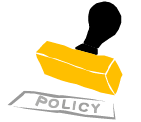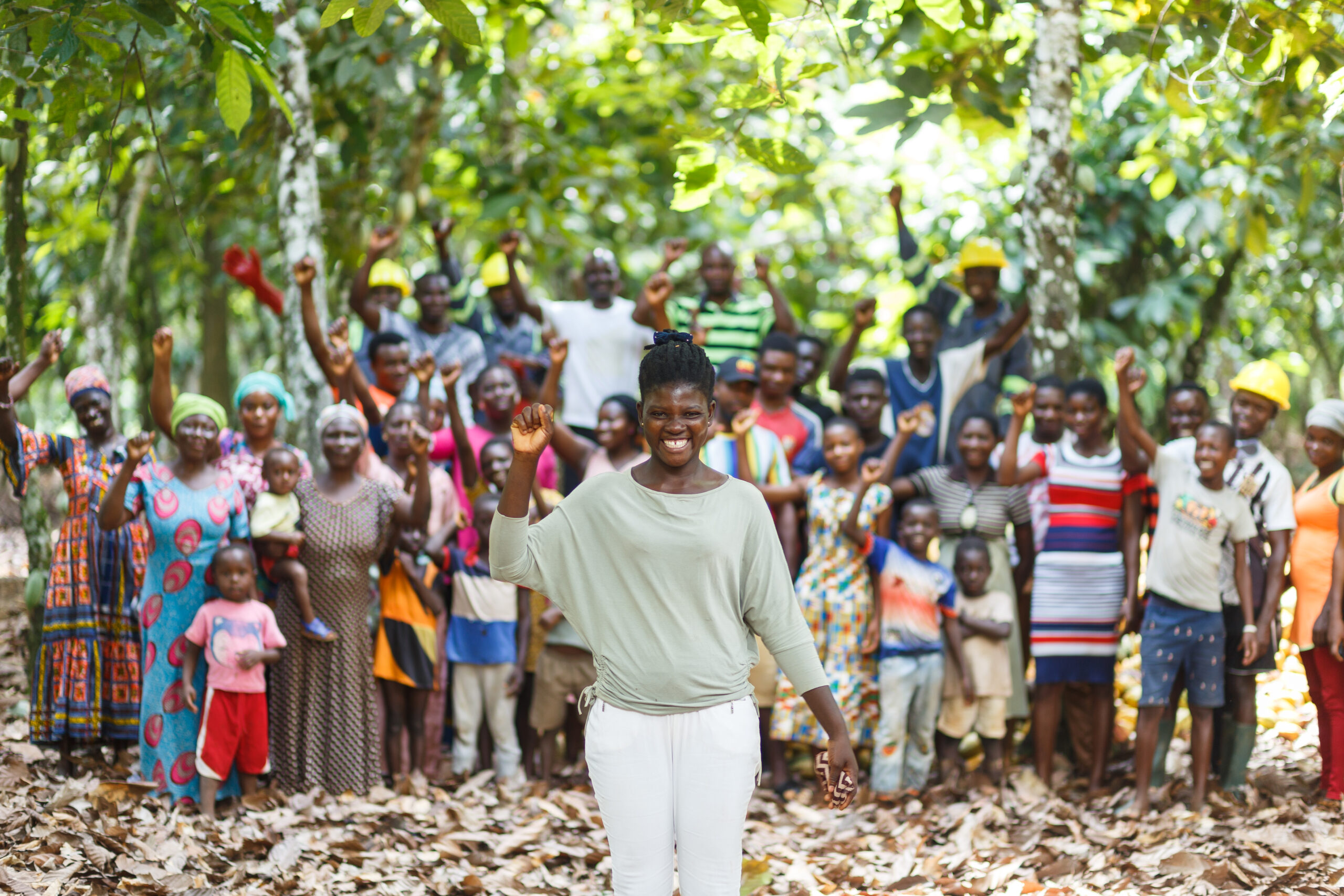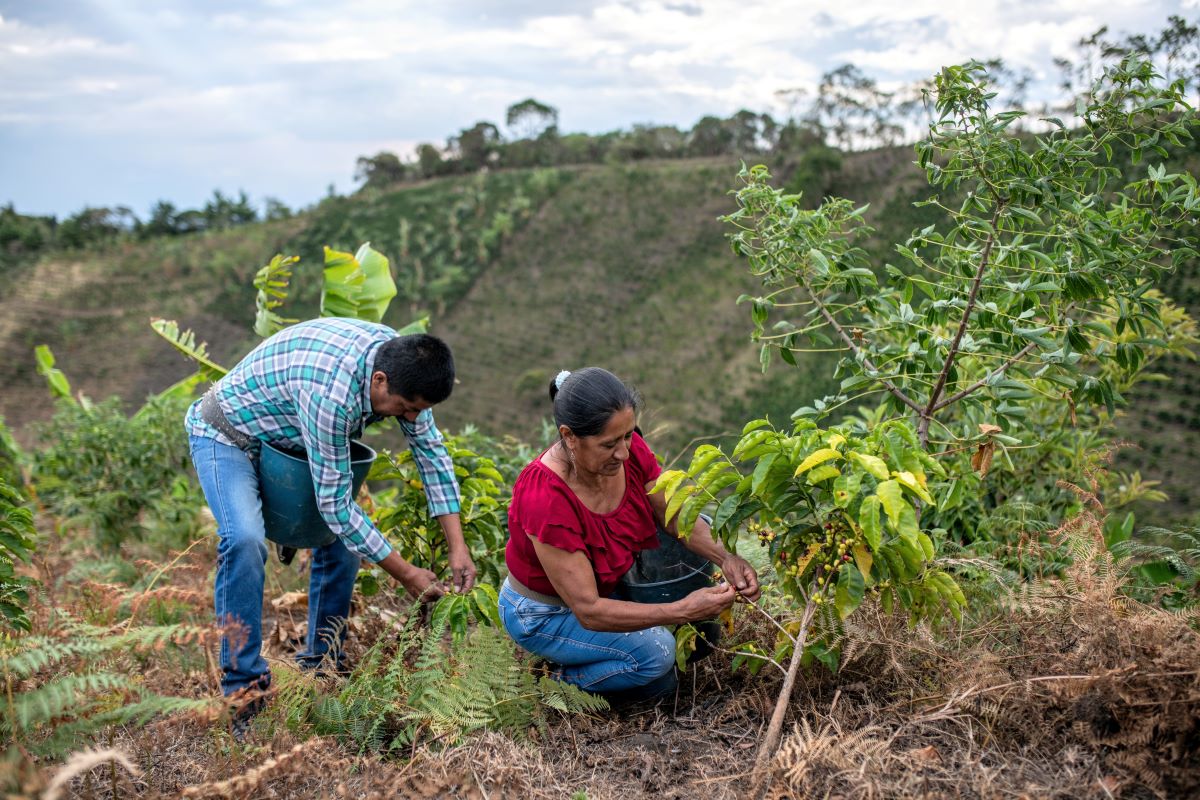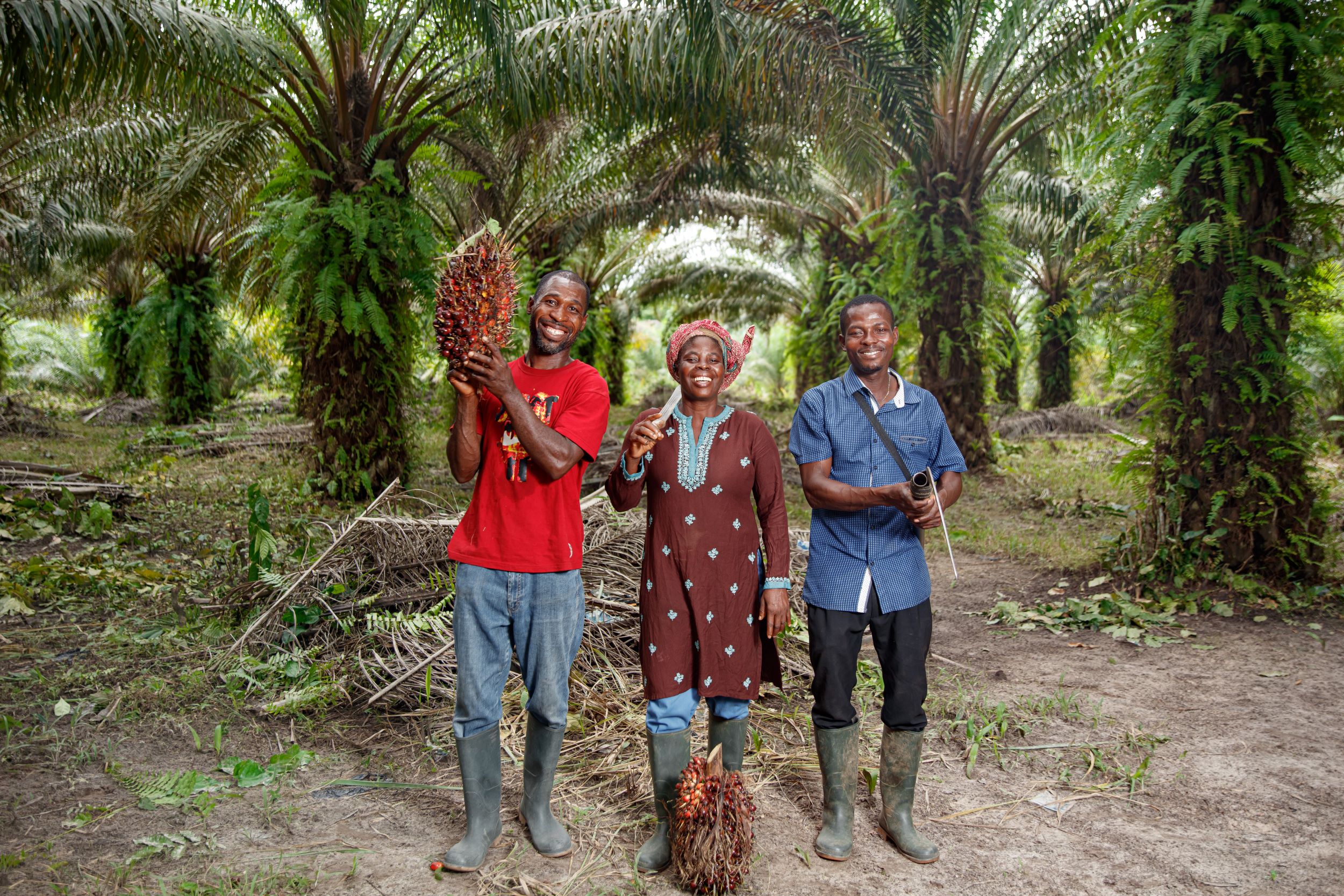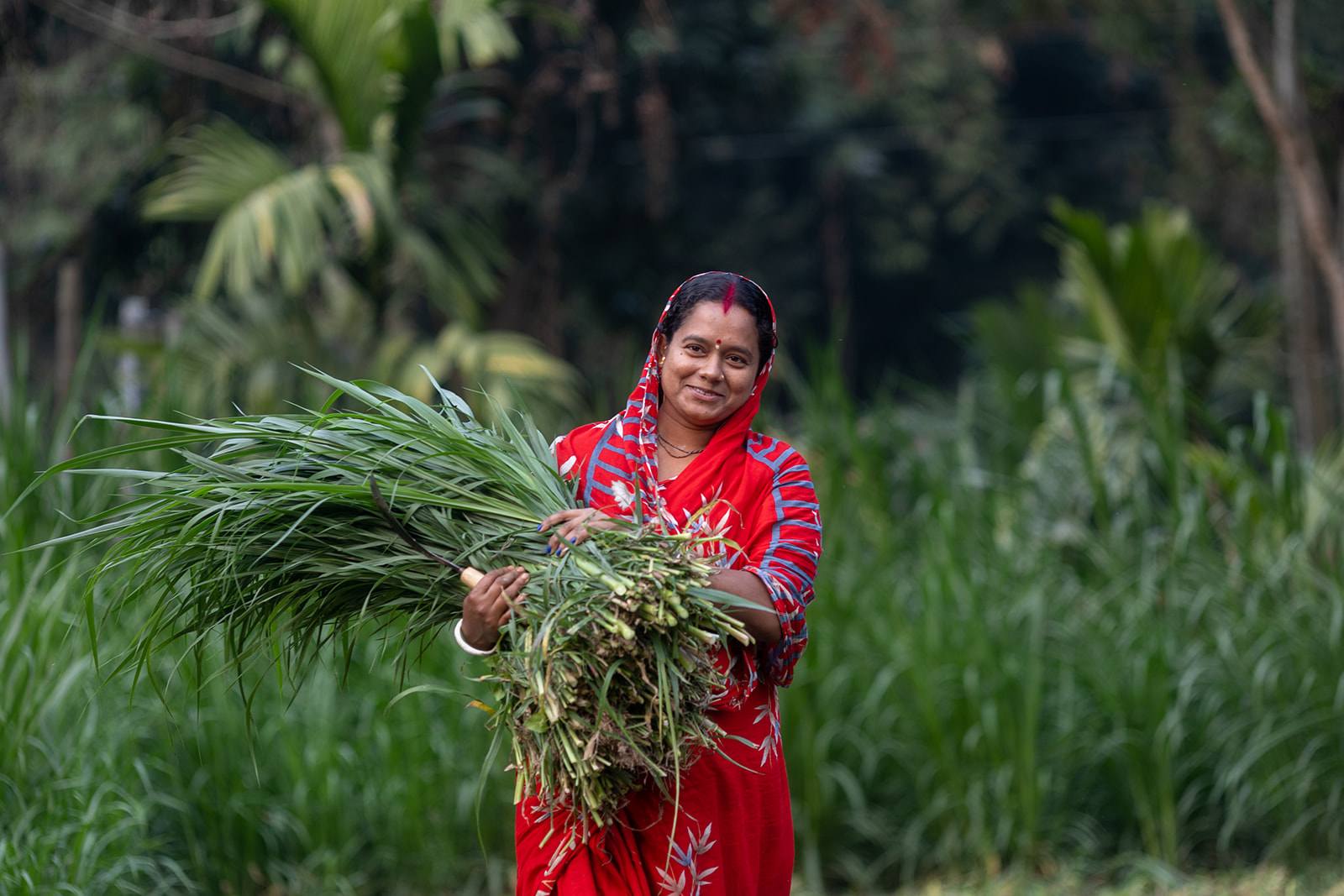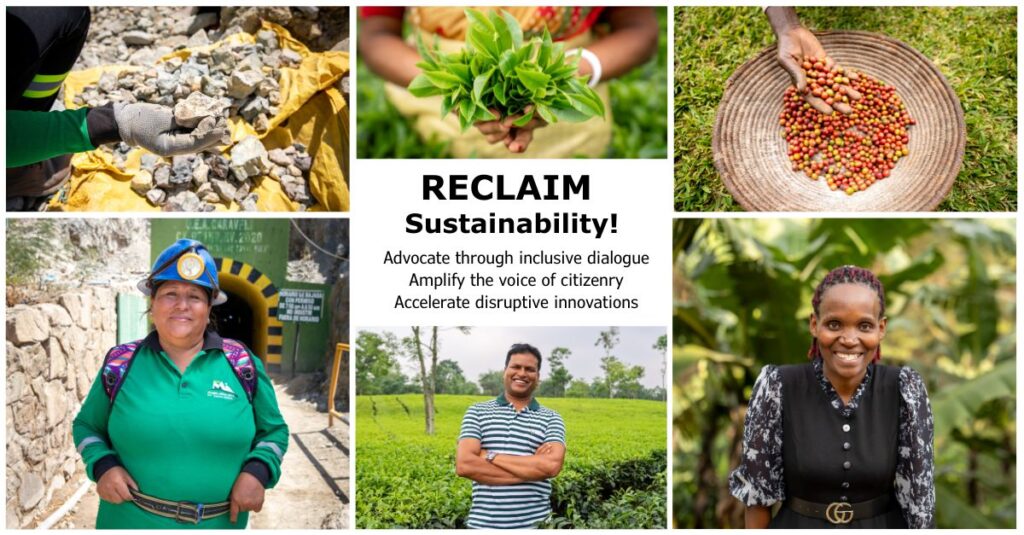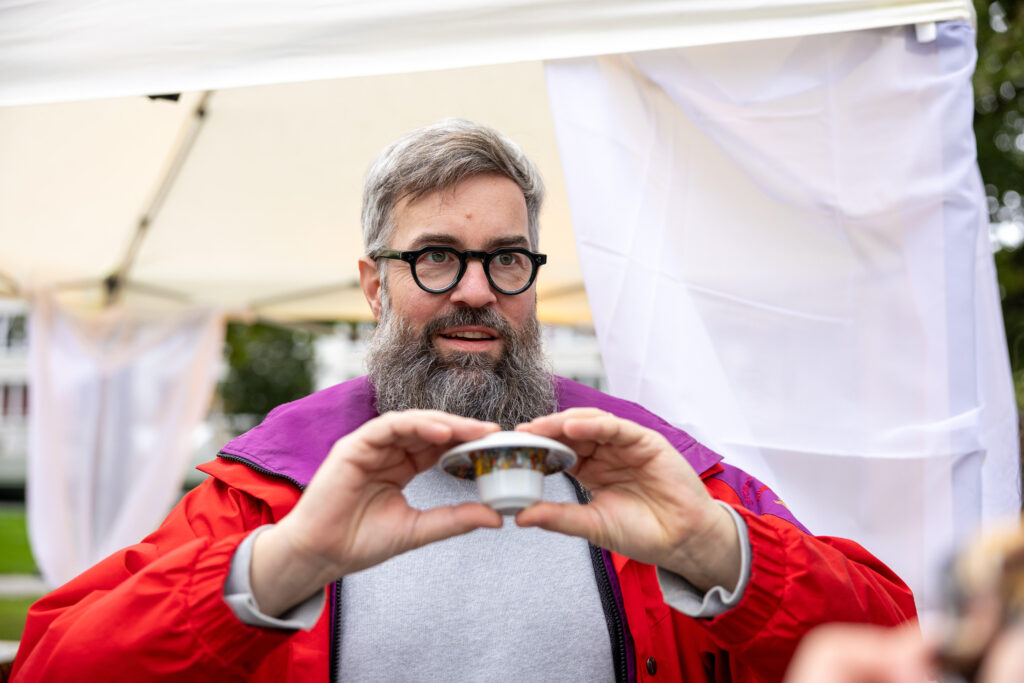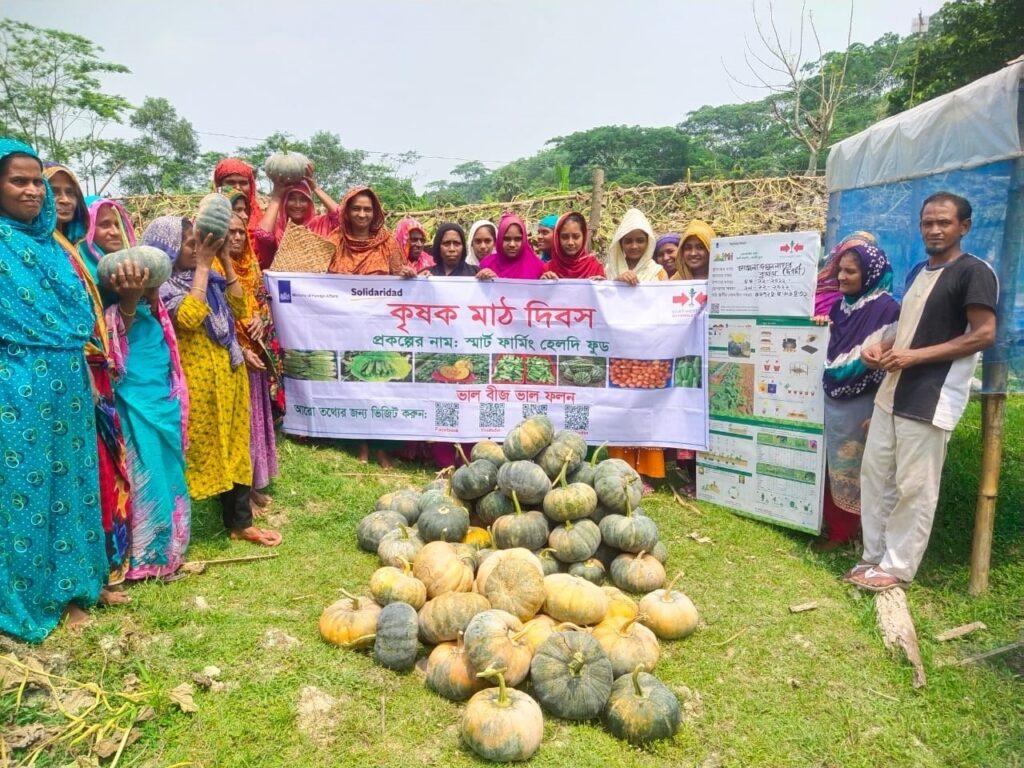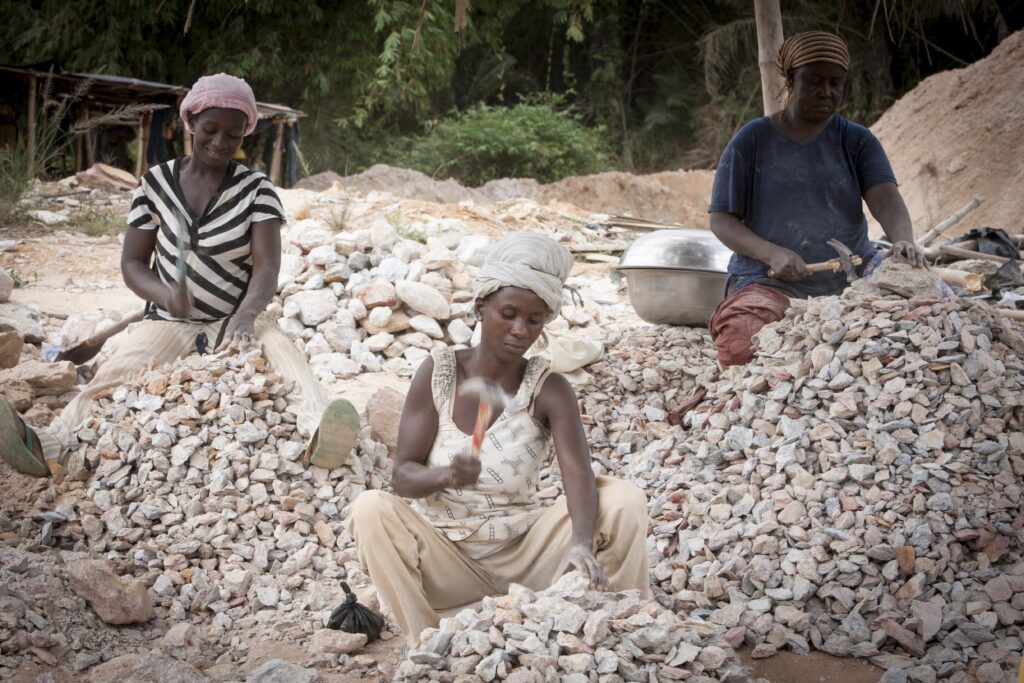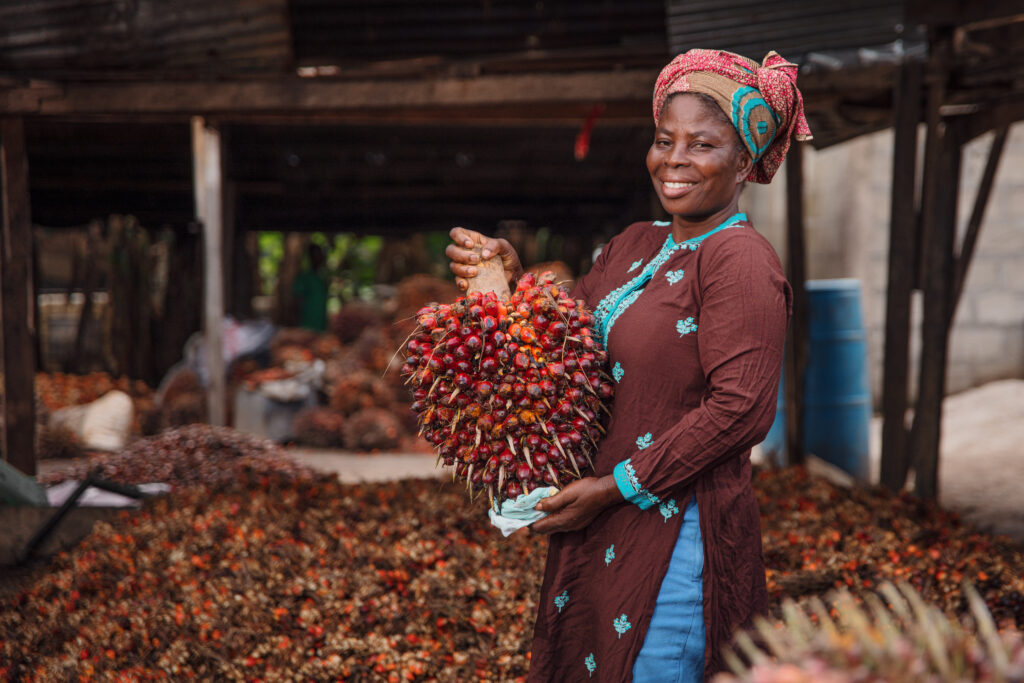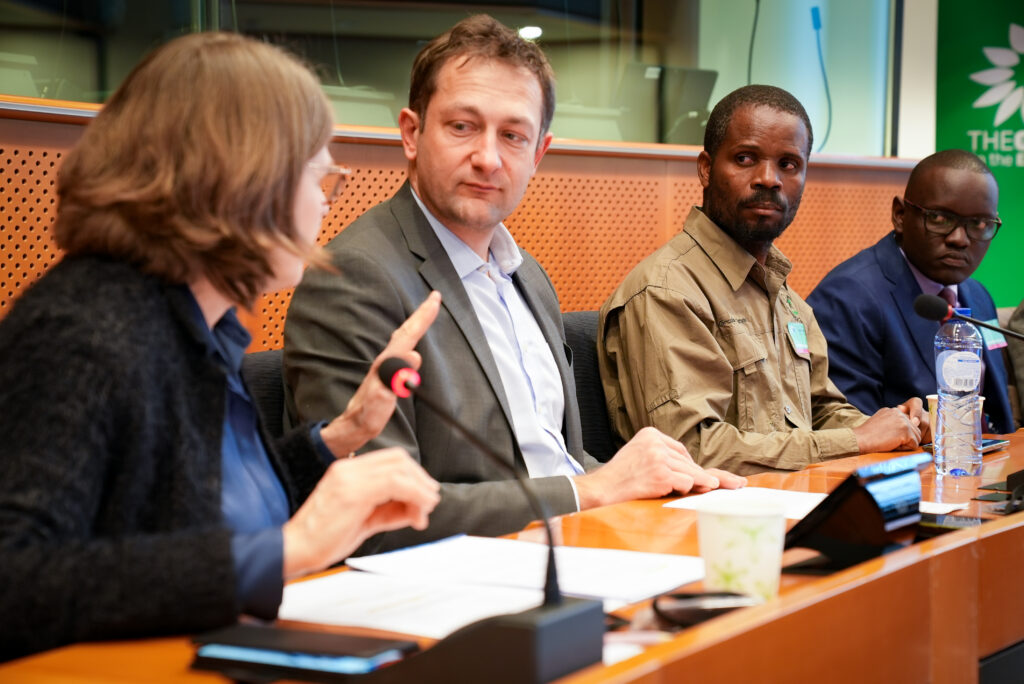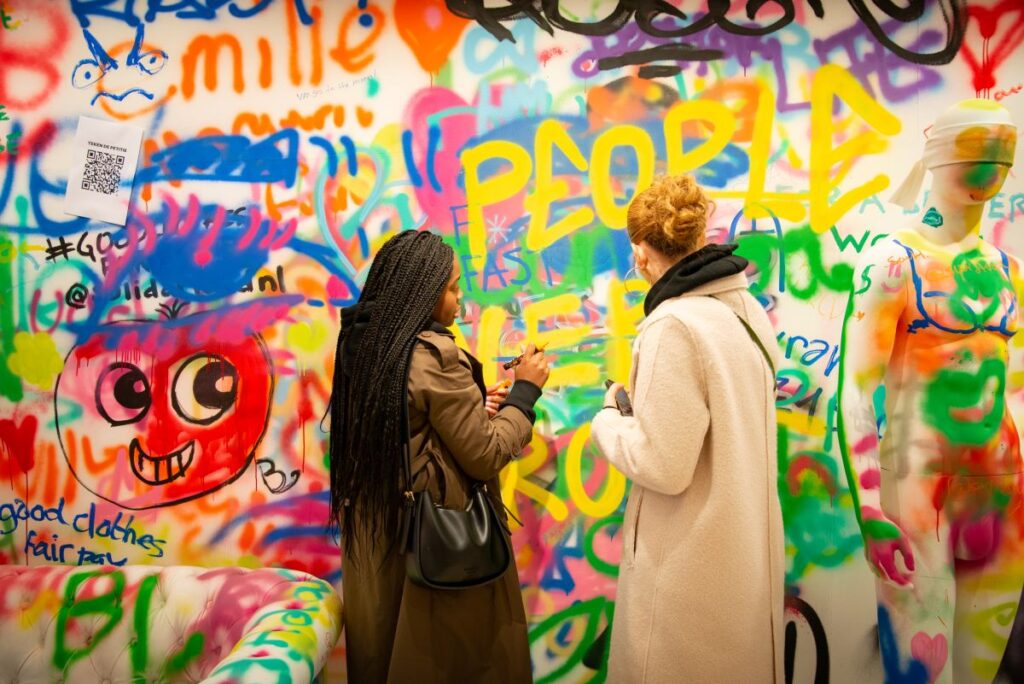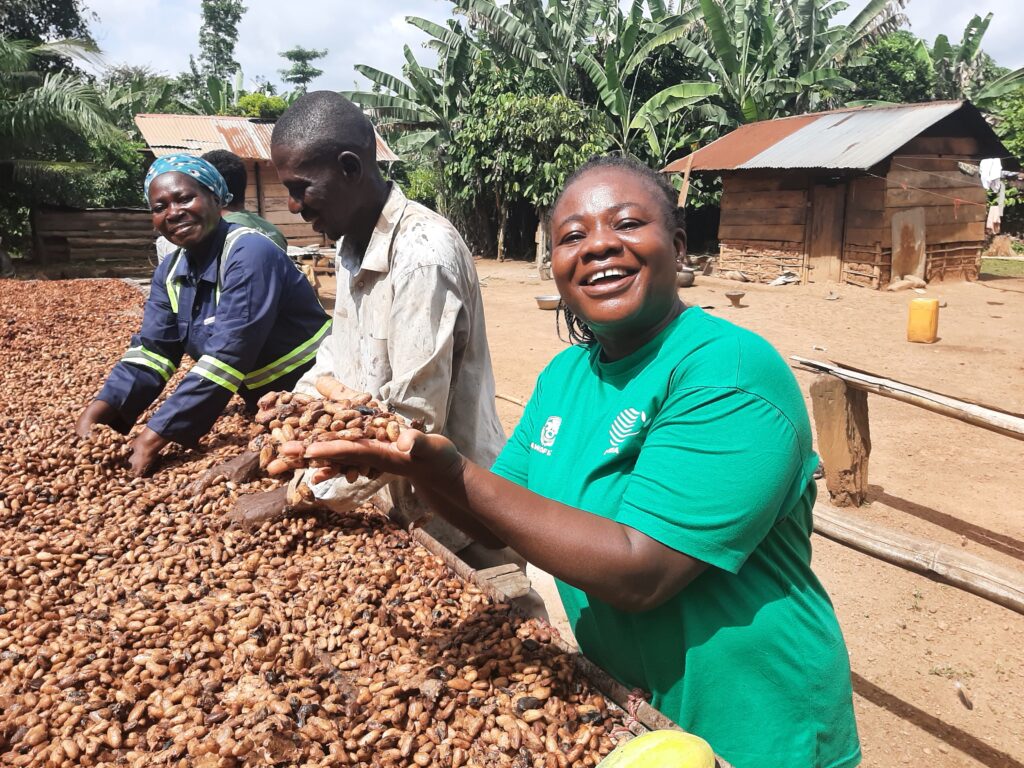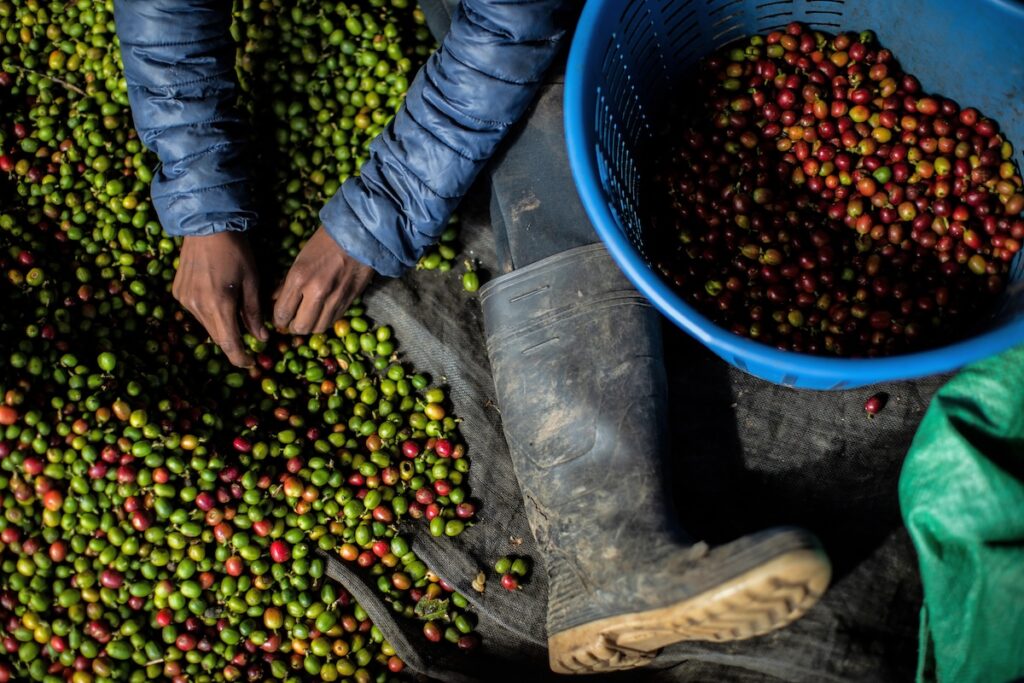Solidaridad’s Europe office generates support and commitments for making international value chains more sustainable, with a focus on improving livelihoods of farmers, miners and workers around the world. With offices in the Netherlands and Germany, representation in the UK, and partnerships in various European countries, there are ample opportunities to influence corporations, governments and citizens to take up and commit to more sustainable practices.
Achievements
Engaging partners for sustainable impact
Solidaridad Europe generates support and commitments for making global value chains more sustainable, with a focus on farmers, miners and workers in producing countries beyond Europe’s borders. Collaboration with stakeholders is vital in our work, including donors and companies, knowledge institutes and civil society organizations. We continue to engage with European partners and further explore opportunities to create a sustainable and inclusive impact.
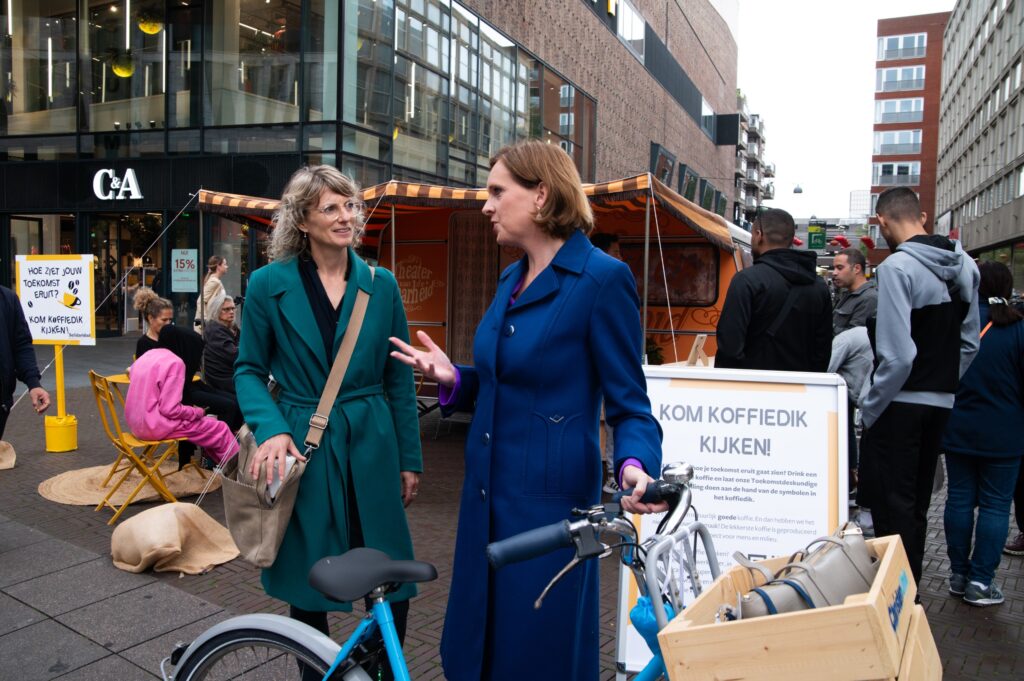
Advocating for systemic change
Europe is highly dependent on trade for its daily needs, supplied by billions of smallholder farmers, miners and workers in agricultural, industrial and services sectors elsewhere. Many European companies and governments show little interest in defending the rights of stakeholders outside Europe. Solidaridad strives to make smallholder farmers’ and workers’ voices from across the globe heard in Europe.
We also bolstered our advocacy work through communications and campaigning activities geared at gaining support from the European public for more sustainable and inclusive policies, such as the Good Clothes, Fair Pay campaign, and the special Signastore we opened in the week of Black Friday to collect signatures from citizens in the Netherlands.
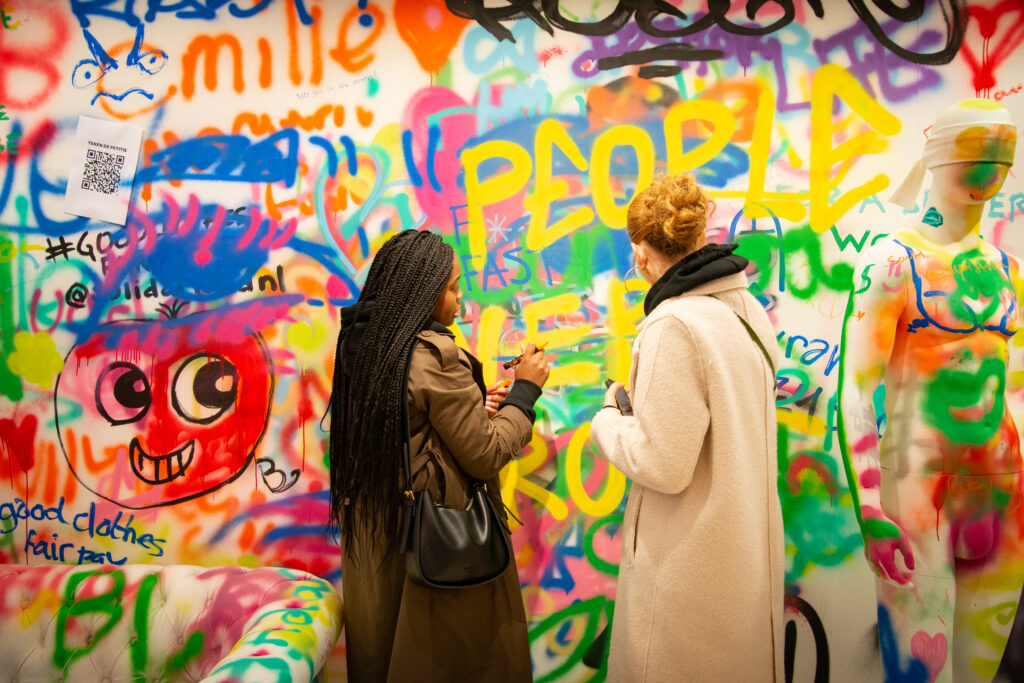
Activating citizens to raise their voices
In 2021 we worked on a collaborative citizen campaign that demanded the Dutch government to put in place Dutch legislation requiring companies to respect human rights and the environment in their value chains. This campaign resulted in 40,000 signatures offered collectively by a group of Civil Society Organizations to the Dutch parliament.
And on Black Friday we organized a ‘protest’ campaign in the Netherlands to draw the public’s attention to the vulnerable position of the makers of our clothes. It involved 30 mannequins that symbolized the ‘stripped-down’ textile workers. They were holding signs with slogans about wrongdoing in the textile industry.
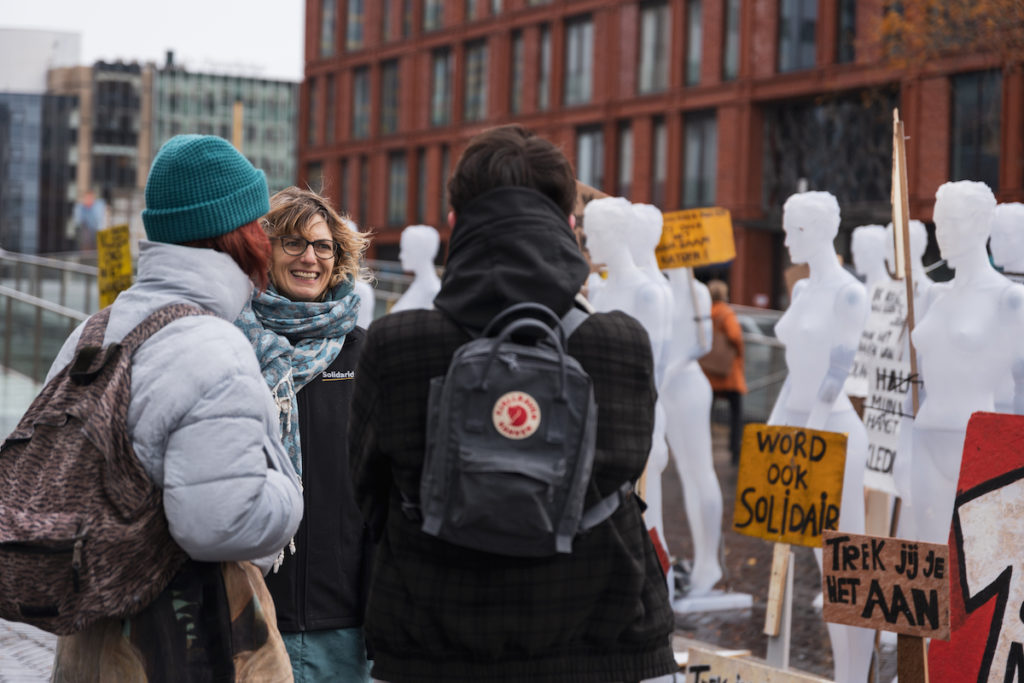
Catalyzing change
2020 marked a year of meaningful relationship building—fostering connections and shared ambitions with existing partners and funders, and sparking dialogues with new partners and donors to scale impact. We signed new donor contracts worth 78 million euros and brought 39 issues to policy maker agendas, putting the smallholder producer at the center. We also brought funding opportunities directly to smallholders through the launch of the PlusPlus crowdfunding platform.
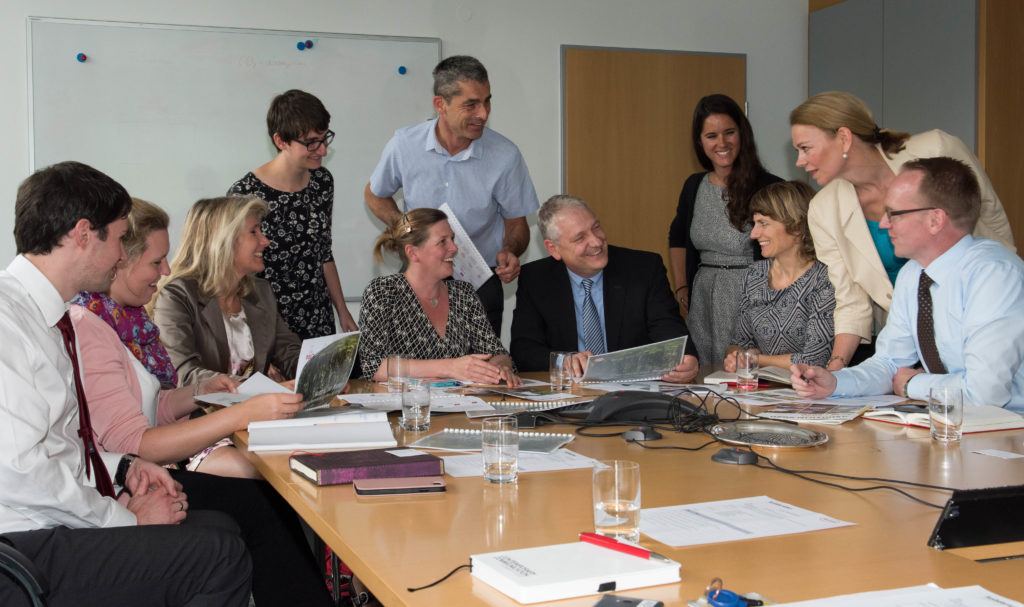
Campaigning for a living income for farmers and workers
Public awareness of the importance of a living income for smallholder farmers and workers grew in 2019. Our pop-up store in Amsterdam in November — as part of our anti-Black Friday campaign — exposed the low prices farmers receive for their products and drew significant media attention. Solidaridad played an active role in the conversation on how to achieve living incomes for people at the beginning of supply chains. We advocated for more sustainable public and private policies, and crafted meaningful initiatives with corporate partners. Solidaridad also celebrated its 50th anniversary in 2019, with an international conference about sustainable development, attended by our partners from various regions.

Working towards long-term, sector-wide impact
We continued to work towards long-term, sector-wide impact across a range of commodities in far-reaching partnerships with, among other companies, Henkel and Syngenta. While the Dutch Ministry of Foreign Affairs and the Dutch Postcode Lottery remained primary donors, Solidaridad broadened its donor base further.

Strengthening our value proposition to European partners
In 2017, we continued to work on strengthening our value proposition towards our European partners, including companies, policy makers, donors, knowledge partners as well as the media, and consumers in the Netherlands. In the autumn of 2017, we launched a coffee campaign for the Dutch market to increase awareness about the persistent negative impact of climate change on the production of coffee and the livelihoods of the coffee farmers. Our campaign gained visibility in the Dutch media thanks to the campaign video and the ‘No Coffee’ Bar concept.

Solidaridad’s Farmer Support Programme gives new boost for further resources
In 2016, the Dutch Ministry of Foreign Affairs gave its partnership with Solidaridad a fresh boost following the evaluation of the successful Farmer Support Programme. Minister for Foreign Trade and Development, Lilianne Ploumen, signed agreements with Solidaridad allocating a total of €80 million by 2020. The strategic partnership is compliant with the ministry’s “aid for trade” policy. Solidaridad has been a pioneer in reforming economies and development policy in this way for several decades.

Towards a new strategy to tackle big global problems
In 2015, Europe was dealing with tough issues like the debt crisis, refugees, terrorism and weak economic growth. Public support for international collaboration and foreign aid was under pressure. In the corporate world, the Volkswagen scandal damaged public trust in how industry adheres to the law. Solidaridad’s answer to these growing populist and nationalist sentiments was clearly described in Solidaridad’s new multi-annual strategy. To solve the big global issues of the next generation, we need more international collaboration, institutional reforms and good governance.


Challenges
Excess extraction
European market actors extract too much value from remote communities and ecosystems. As a result, many farmers, workers and miners live in poverty, while our biosphere and atmosphere are degrading rapidly. Only when European market actors commit to sustainability, and are ready to pay for it, can we facilitate the transition to an economy that works for everyone and safeguards the planet for future generations.
Solutions
Creating meaningful connections
Tackling supply chain inequity requires a comprehensive and multi-stakeholder approach. Through advocacy, media engagement, working in partnership with companies, and fundraising, Solidaridad is creating a supportive environment for meaningful policy changes and programme implementation around the world.

In Europe, we partner with hundreds of players across global value chains, from corporations to knowledge institutes and civil society organizations. Find out what we can achieve together.
Get in touch
Want to know more about our work in Europe? Get in touch with our team.

Heske Verburg
Managing Director
heske.verburg@solidaridadnetwork.org
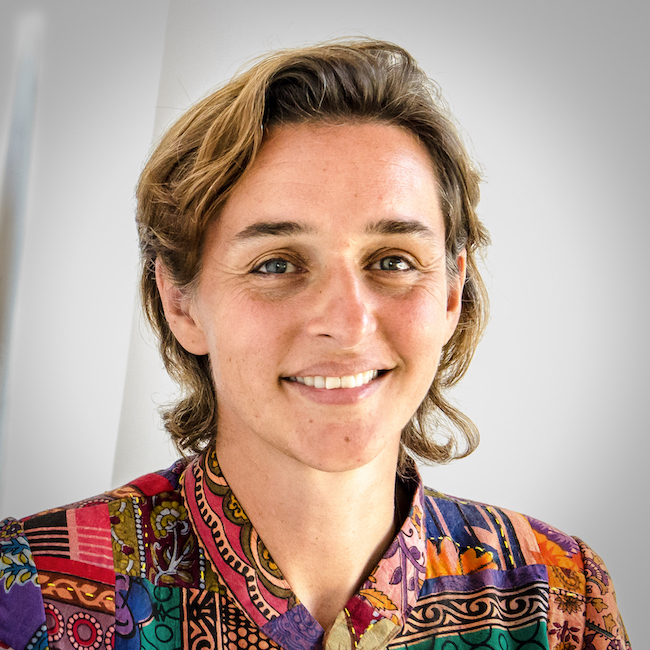
Myrtille Danse
Head of Corporate Engagement and Partnerships
myrtille.danse@solidaridadnetwork.org
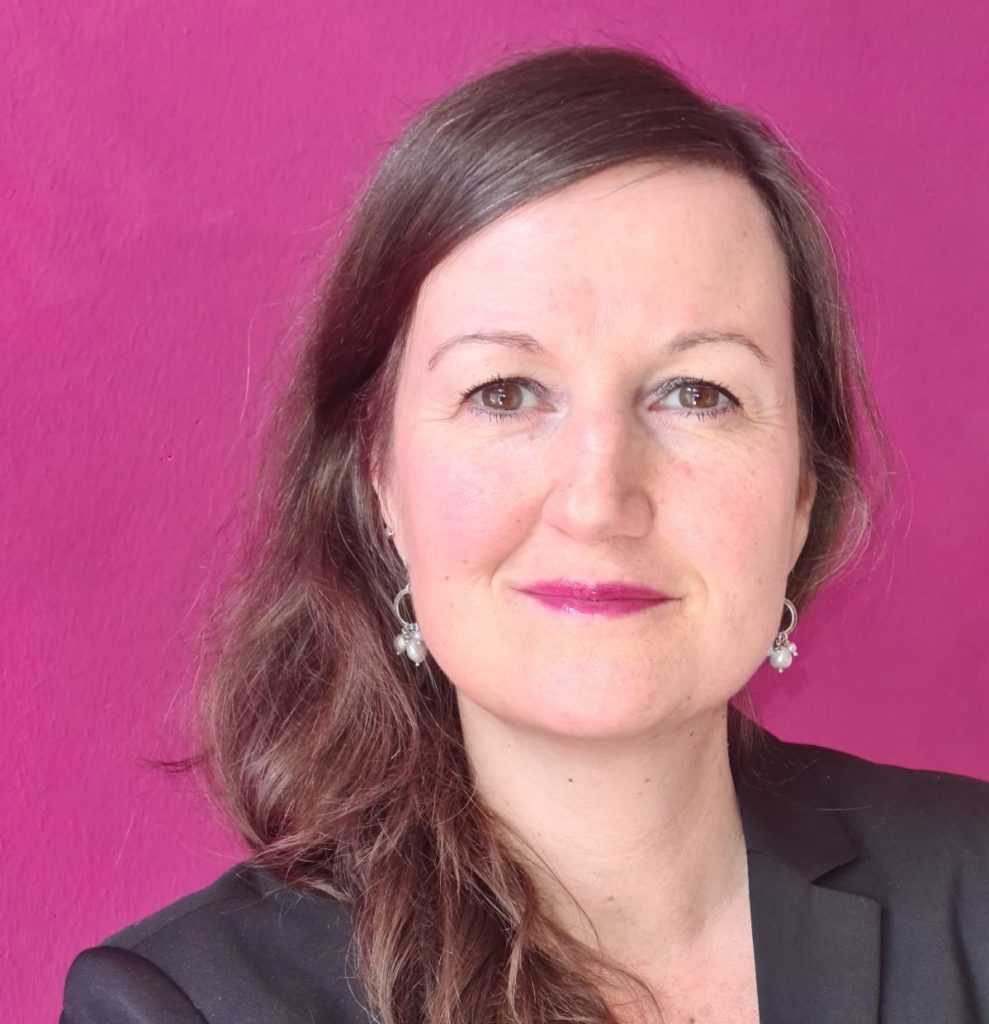
Melanie Rutten-Sülz
Country Representative, Solidaridad Germany
melanie.rutten-suelz@solidaridadnetwork.org

